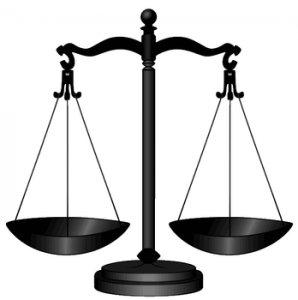
Lately there have been recent discussion about whether or not Congress can sue the President. We have had several occurrences, in fact, where the President has violated the Constitution by overreaching his authority with regard to Congress. In these instances, Congress should have the standing to sue the President.
When Congress has acted in its authority as the Legislative branch, that institution as a whole has been compromised when the President, acting as the Executive branch, has ignored the actions of Congress and acted unilaterally in a manner other than that which was decided by Congress.
For instance, Congress voted for Obamacare. It contained some 2000 pages of laws, rules, and regulations. And yet dozens of times since the implementation of the law (March 2010), parts of the law been ignored, delayed, or changed by the President or some of his agencies — directly contrary to the actions of Congress crafting and passing a law.
In an even more obtuse example, Obama passed the Dream Act on his own. Though the president wanted it, Congress did its institutional job and it did not pass. Instead of letting the matter end there, as proscribed by the Constitution, the president implemented it anyway.
The crux here lies in understanding the will of the people. Indeed, Thomas Jefferson aptly remarked that, “The will of the people is the only legitimate foundation of any government, and to protect its free expression should be our first object.”
Remember, Congress (composed of elected representatives) is the Legislative Branch. Under the Constitution, the Executive Branch has no direct power to pass legislation. That power lies solely with Congress. Therefore, if Congress does not create and pass a particular law, it is because the people don’t will it. That is the free expression of their Constitutional power.
When the President says, “I have to act because Congress does not”, he violates the will of the people with a gross overreach of Executive authority.
Part of the current problem lies in the fact that Obama’s actions are allowed to stand because no one fights it. If this continues without a challenge, then future successors in the Executive branch can — and will — point to Obama and say “Obama did it, so now we can too”.
So let’s get this clarified once and for all that the constitutionality of some of Obama’s actions are not correct. When Obama has acted directly contrary to a decision made by the institution of Congress — creating a law after Congress has declined to do so, or changing a law passed by Congress — he threatens the institution of the Legislative Branch itself and the will of the people as a whole. We have the will of the people through Congress, not the majority of the people’s opinion as defined by the latest poll question.
The three branches of government, and their checks and balances, must be meticulously maintained. A lawsuit on behalf of the institution of Congress to the President regarding powers specifically granted and not granted (including the lawmaking powers), is a necessary safeguard for our Constitutional Republic.